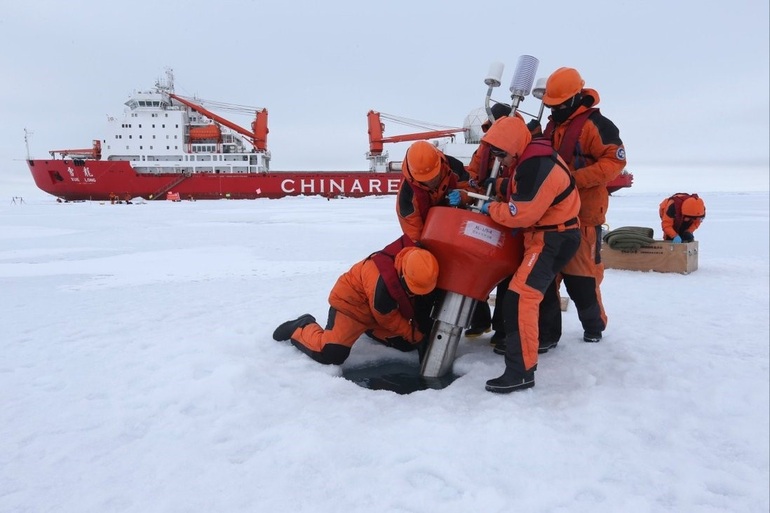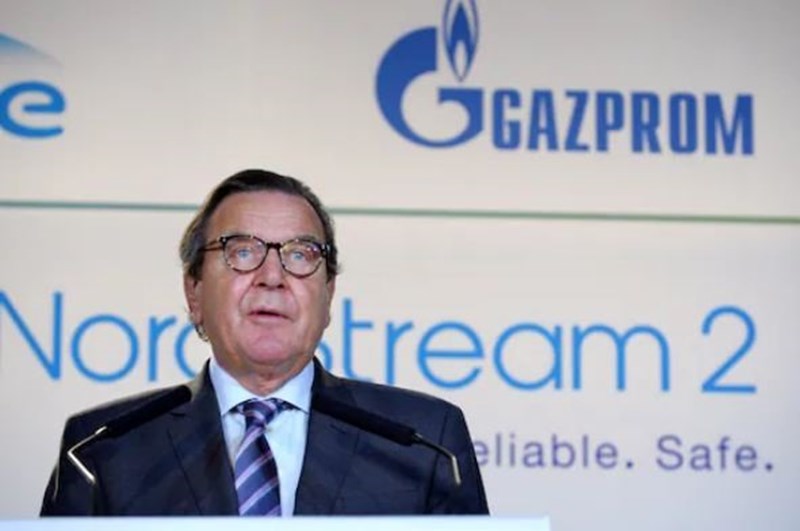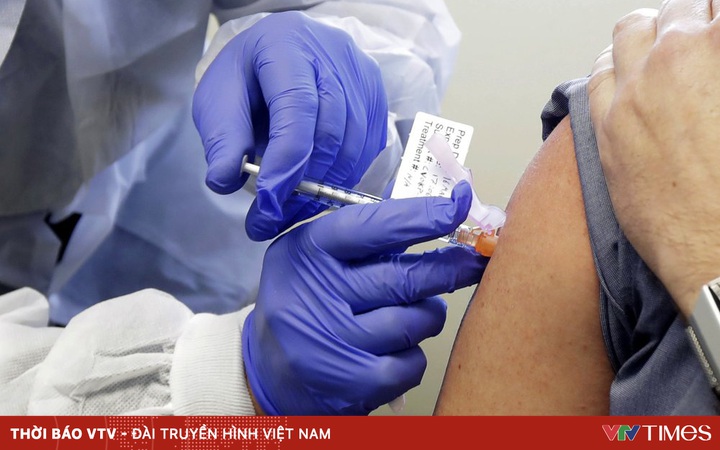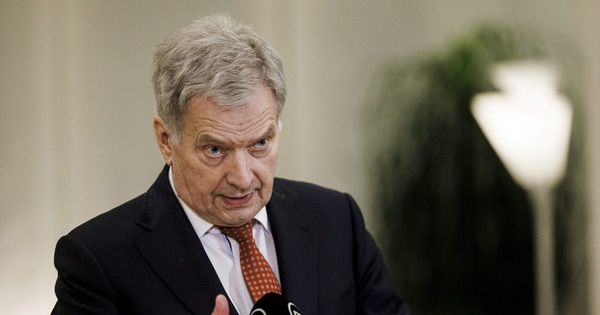Difficult situation for China’s “Silk Road” in the Arctic
(Dan Tri) – China’s ambitions with the “Silk Road” project in the Arctic are expected to be significantly affected by the intense war in Ukraine.

A Chinese research team installs equipment near the Xue Long icebreaker in the Arctic Ocean (Artwork: Xinhua News Agency).
SCMP Quoting experts, China must be careful in navigating Arctic cooperation with Russia when it comes to the operation military Moscow’s actions in Ukraine disrupted international cooperation in the region and put the Arctic Council’s activities “frozen”.
Seven of the eight Arctic Council members have announced a boycott of the meetings, including upcoming talks in Russia, which currently holds the rotating presidency.
The United States, Canada, Finland, Denmark, Iceland, Norway and Sweden issued a joint statement on March 3, questioning the future of the leading intergovernmental forum for the Arctic states.
Established in 1996, the Arctic Council facilitates cooperation, collaboration and interaction on issues affecting the Arctic, including resource management, conservation, pollution, and impacts of the Arctic. Climate change is melting the polar ice caps.
China is not a country in the Arctic but acts as an observer along with 12 other countries. In recent years, Beijing has increased regional cooperation with strategic partner Russia, as the melting ice opens up new shipping routes in what China calls the “Silk Road” in the Arctic.
Overshadowed by the war in Ukraine
SCMP Quoting Associate Professor Marc Lanteigne at Tromso University in Norway, although Russia has said it will still organize events, the boycott of the countries of the Arctic Council will cast a shadow on regional cooperation between the countries. Arctic and non-Arctic governments.
“We are witnessing a growing list of hazards to environment in the Arctic such as rising temperatures, loss of permafrost and wildfires at higher latitudes,” Lanteigne said.
The current tension between Russia and the West has raised concerns that it will trigger an increase in the military presence in the Arctic.
On March 14, NATO said about 30,000 troops from 27 countries, including close partners and council members such as Finland and Sweden, were participating in the harsh winter exercise Cold Response 2022. led by Norway, which normally takes place every six months. Unlike previous years, Russia refused to send observers to this exercise.
On the same day, Canada and the United States announced the launch of an air defense operation in the Canadian Arctic, to test the ability to “respond to aircraft and cruise missiles” that could threaten North America.
Both drills are events was pre-planned and unrelated to developments in Ukraine, but is still important in the current geopolitical landscape.
Russia, which holds the chair of the Arctic Council until 2023, is also seeking to restore security cooperation with Western countries in the polar regions. That would include the Arctic Defense Ministers’ meetings and the Arctic Security Forces Roundtable, which have been suspended or absent from Russia since it annexed the Crimean peninsula to Russia. year 2014.
However, Zhao Long, senior fellow at the government-affiliated Shanghai Institute of International Studies (SIIS), doesn’t have high expectations for these conferences.
But the problem is that the Arctic Council will find it difficult to continue functioning without the participation of Russia, the country with the largest Arctic coastline and the center of many regional initiatives, including environmental diplomacy. and science.
Russia controls more than half of the Arctic Ocean’s coastline, and about 2 million of its citizens live in the region, or about half of all people living in the far north, according to the Arctic Institute, a think-tank. headquarters in Washington.
Zhao said: “It is difficult without Russia. Without Russia, it is very difficult for the Arctic Council to function.”
China’s Concerns
Like many other non-Arctic countries, China has sought a greater role in Arctic governance through the council and declared itself a “subarctic state” in 2018.
As the world’s No. 2 economy, it is also seeking economic development opportunities in a resource-rich region caused by climate change.
China’s concept of the “Arctic Silk Road” involves the creation of new freight routes linking East Asia, Western Europe, and North America across the Arctic Circle. It also includes scientific, environmental and resource extraction efforts.
The concept was highlighted in Beijing’s five-year 2021-2025 plan launched last year as part of its trillion-dollar Belt and Road Initiative, which aims to expand influence through investment. and global infrastructure.
Xu Qingchao, an associate professor at the University of the Chinese Academy of Sciences, said a temporary freeze on the Arctic Council’s activities would not affect China’s Arctic strategy. As an observer, China has no substantive role in the council’s decision-making process, she noted.
However, Zhao said that China’s cooperation with Russia in the Arctic will be closely monitored due to unprecedented Western sanctions against Moscow.
Joint scientific research programs may be postponed, while the Yamal LNG plant project in northern Russia, about 30% of which is Chinese-owned, may be disrupted.
Lukin said that the conflict in Ukraine will strengthen cooperation between Russia and China in the Arctic.
“Russia is now almost completely cut off from Western capital and technology, and so cooperation with China is obvious if it wants to proceed with major development plans in the Arctic, which often require capital.” major investments, especially in transport infrastructure, resource extraction and governance,” emphasized Mr. Russia remains an ideal partner for China, he added.
at Blogtuan.info – Source: dantri.com.vn – Read the original article here



